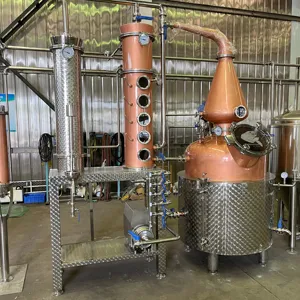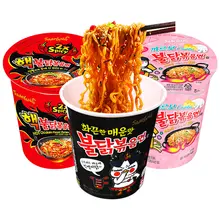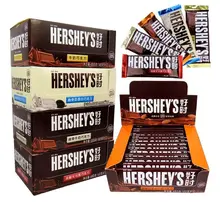What are Chinese Liquor
Chinese liquor, also known as Baijiu, is a distinct category of alcoholic beverages native to China. This traditional spirit is predominantly made from grain, with sorghum being the most common base ingredient, though wheat, rice, barley, and millet can also be used. The production process involves fermentation and distillation, yielding a high-proof alcohol that is rich in flavor and aroma. Chinese liquor plays a crucial role in Chinese culture and social functions, often consumed during celebrations, festivals, and business banquets.
The production of Chinese liquor is an art that has been refined over centuries. The process begins with the selection of raw materials, which are then fermented using unique yeast cultures specific to different regions or distilleries. This fermentation can take place in mud pits, stone pools, or wooden barrels, depending on the traditions of the distillery. After fermentation, the mash is distilled to produce a clear spirit that can be quite potent, typically ranging from 40% to 60% alcohol by volume (ABV).
Aging is another critical aspect of Chinese liquor production. The distilled spirit may be stored in ceramic vessels or wooden casks for several months to many years to develop its complexity and smoothness. The aged liquor is then blended by master blenders who craft the final product using their expertise to achieve a balanced flavor profile.
Chinese liquor is not only a beverage but also a cultural symbol. It embodies the history, craftsmanship, and regional characteristics of China. It caters to a wide audience ranging from connoisseurs who appreciate its nuanced flavors to casual drinkers looking to experience an integral part of Chinese heritage.
Types of Chinese Liquor
The world of Chinese liquor is diverse, with several types categorized by their distinct flavors and production techniques. Here's a brief overview of the different types:
Strong Aroma Baijiu: Perhaps the most popular type among Chinese liquors, strong aroma baijiu offers a complex and potent fragrance that is fruity and floral. It's typically enjoyed neat during special occasions or as part of business gatherings.
Sauce Aroma Baijiu: Known for its savory umami notes reminiscent of soy sauce, this type is most famously represented by Maotai. Sauce aroma baijiu is considered a luxury product and often served at prestigious events.
Light Aroma Baijiu: Lighter in flavor than its counterparts, this variety delivers a gentle and smooth experience with a clean finish. It's commonly served chilled and pairs well with food.
Rice Aroma Baijiu: Made exclusively from rice, this type offers a milder aroma and taste profile similar to sake or soju. Rice aroma baijiu is typically consumed in regions where rice is more prevalent than other grains.
Mixed Aroma Baijiu: As the name implies, mixed aroma baijiu combines characteristics from different types of baijiu, creating a hybrid flavor profile that may appeal to those seeking variety within the spectrum of Chinese liquors.
How to choose Chinese Liquor
Selecting the right Chinese liquor for your business involves understanding your clientele and their preferences. When considering which types of baijiu to stock:
Consider the aroma profile that might appeal most to your customers. Whether they prefer strong, distinctive flavors or something lighter and smoother can guide your choice between strong aroma baijiu or light aroma baijiu respectively.
For establishments catering to high-end clientele or special events where luxury products are expected, sauce aroma baijiu could be an excellent addition due to its prestige and unique flavor characteristics.
Rice aroma baijiu might be more suitable for venues or events where guests are accustomed to beverages like sake or soju but are looking for something distinctly Chinese.
Mixed aroma baijiu offers versatility for businesses that wish to provide a range of taste experiences without specializing in one particular type.
When sourcing Chinese liquor through Alibaba.com, consider the design style and packaging that aligns with your brand identity or client's preferences. From minimalist to oriental designs available on Alibaba.com, you can find packaging that complements your establishment's aesthetic or event theme.
Additionally, consider the commercial buyer you represent—whether department stores, restaurants, hotels or specialty stores—and select products that match your business model and customer base.
Best Chinese Liquor on Alibaba.com
Alibaba.com stands out as an international wholesale marketplace connecting businesses around the globe with an extensive range of suppliers offering diverse products including Chinese liquor. This broad platform ensures businesses can find exactly what they need—whether it's strong aroma baijiu for celebratory banquets or rice aroma baijiu for casual dining experiences—all under one virtual roof.
Choosing Alibaba.com means access to a vast selection tailored for various commercial buyers such as restaurants looking for premium spirits to enhance their beverage menu or gift stores seeking beautifully packaged bottles for special occasions. With user-generated content aiding in filtering options and keyword-rich product names helping buyers navigate through selections effectively, Alibaba.com simplifies the procurement process.
Furthermore, with features like Trade Assurance ensuring payment protection until delivery completion and tools facilitating communication in local languages on mobile-friendly interfaces, Alibaba.com exemplifies its dedication to "making it easy to do business anywhere." This commitment coupled with a vast product range makes Alibaba.com an ideal source for businesses worldwide looking for authentic Chinese liquor offerings without compromising on choice or convenience.
Common FAQs for Chinese Liquor
What is the primary ingredient in Chinese liquor?
The primary ingredient in most Chinese liquors is grain, with sorghum being the most commonly used. However, other grains such as wheat, rice, barley, and millet may also be utilized depending on the variety.
How does the flavor of Chinese liquor vary by type?
The flavor of Chinese liquor varies significantly by type, with strong aroma baijiu offering fruity and floral notes, sauce aroma baijiu delivering savory umami flavors, light aroma baijiu being more subtle and smooth, rice aroma baijiu resembling sake or soju, and mixed aroma baijiu combining elements from multiple flavor profiles.
What is the typical alcohol content of Chinese liquor?
Chinese liquor typically has a high alcohol content, ranging from 40% to 60% alcohol by volume (ABV).
Can Chinese liquor be aged, and if so, how does it affect the flavor?
Yes, Chinese liquor can be aged. The aging process takes place in ceramic vessels or wooden casks and can last from several months to many years. Aging generally enhances the complexity and smoothness of the liquor's flavor profile.
What are the common occasions for consuming Chinese liquor?
Chinese liquor is traditionally consumed during celebrations, festivals, business banquets, and various social functions.
How should businesses choose which types of Chinese liquor to offer?
Businesses should consider their clientele's preferences when choosing types of Chinese liquor to offer. Factors such as desired aroma profiles, client base demographics, and the occasion for consumption should guide the selection process.
What packaging styles are available for Chinese liquor on Alibaba.com?
Packaging styles for Chinese liquor on Alibaba.com range from minimalist to oriental designs. Businesses can select packaging that matches their brand identity or suits the theme of a particular event or establishment.
How does Alibaba.com ensure the quality of Chinese liquor offered on its platform?
Alibaba.com vets its suppliers to ensure they meet certain quality standards. While the platform itself does not guarantee product quality, features like Trade Assurance provide a level of protection for transactions.
What should commercial buyers consider when purchasing Chinese liquor for resale?
Commercial buyers should consider factors like their target market's preferences, potential use cases (such as gifting or dining), packaging appeal, and whether there's a demand for particular types of Chinese liquor within their customer base.
Are there any restrictions on selling Chinese liquor that businesses should be aware of?
While Alibaba.com does not outline specific restrictions, businesses should familiarize themselves with local laws and regulations regarding the sale of alcoholic beverages in their respective regions before purchasing or reselling Chinese liquor.










































 浙公网安备 33010002000092号
浙公网安备 33010002000092号 浙B2-20120091-4
浙B2-20120091-4